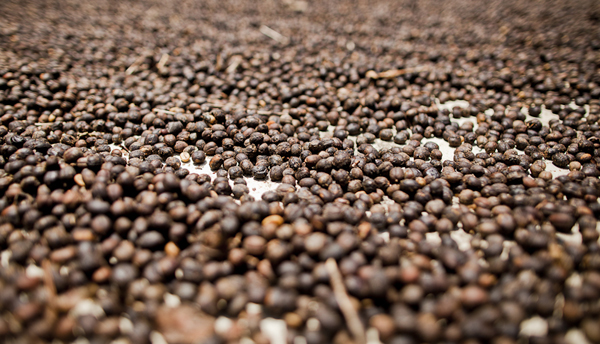
Photo by Adam Dietrich
These farmers are dedicated to, among other things, the cultivation of coffee.
The Diria National Park is one of the parks with the richest biodiversity in our country. However, the park’s creation has brought conflict for about 170 families whose properties ended up incorporated within the jurisdiction of the park.
The parks protects 5.448 hectares of primary and secondary forest and is located in the Canton of Santa Cruz and part of the high areas of Nicoya.
This project was developed with the objective of protecting animal and plant species that are in danger of extinction, as well as the water tables that feed the Medio, Tigre, Diria and Verde rivers.
According to environmental specialists, the white tailed deer, the turkey hen, the ocelot and the bell bird are in danger of extinction.
These families allege that they haven’t been paid, that their normal agricultural labor is restricted and that MINAET impedes them from selling their properties.
According to Jose Santos Briceño Gomez, who is the president of the Frente Campesino (Farmers Front) that was formed in the area to demand their rights, “We were never notified of this project and even less so have they called us to make any arrangement…We have the problem that has been getting worse; people have even been filed against already for working on their farm.”
Briceño allges that they are not against the park, but what they are demanding of the government is just pay according to the real value of the properties in order to have the resources available to relocate to another sector.
“The park has already been created and we aren’t opposed, but we do demand punctual payment of the value of the properties, because this does belong to us by law,” he argued.
For his part as representative of MINAET, Marin believes that those affected are permitted to continue working their lands, although under the standards legally established by international agreements and the law of the creation of parks. According to Marin, the property owners can practice agricultural labors and raise livestock as long as they don’t cut down primary or secondary forest; they are not permitted to cut trees for lumber purposes or change land use such as converting a forest site into an urban or industrial activities zone. Strict control of the use of chemicals should exist, and burning and hunting are definitely prohibited.
These farmers are dedicated to, among other things, the cultivation of basic grains and raising domestic animals, and lately the cultivation of coffee has gained force to supply the cooperative of Coopepilangosta R.L. of Hojancha.
Consulting Briceño about the measures they plan to take, he said that they already presented a “contencioso administrativo” (administrative dispute) and if necessary they will go to the Constitutional Court for a recurso de amparo (constitutional appeal).
| 
